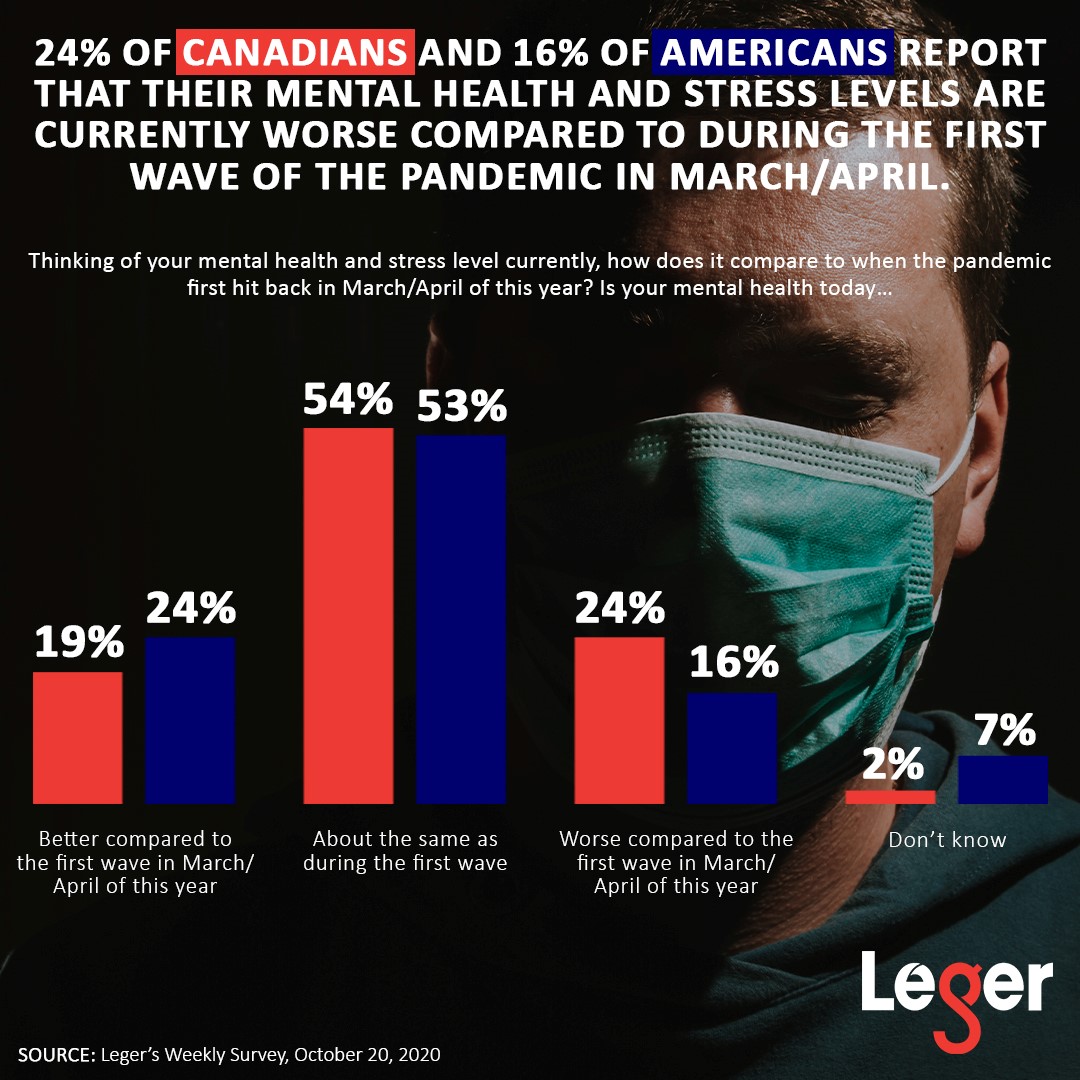The results of a recent survey are shedding light on the state of mental illness in Canada as the coronavirus crisis continues.

According to data released by Leger, 24 per cent of Canadians have reported their mental health has declined since the first wave of the pandemic. The company has been conducting weekly surveys with 1,500 participants across the country on how people have been feeling since the start of the pandemic in March.
Executive vice-president Dave Scholz says Canadians’ biggest source of stress of anxiety is “when (the pandemic) will end.”
Scholz says people have experienced “a loss of control to a certain degree.”

However, for 24-year-old Jamie-Lee Jingle, social isolation has been the biggest factor contributing to a decline in her mental health. Jingle currently suffers from depression, anxiety and grief.

Get breaking National news
“It’s been a struggle since I was 14,” she said.
“I had to grow up at a young age and help my dad with my siblings. I also had to go through a lot of things with friends who passed away due to mental health reasons.”
Last year, Jingle’s 17-year-old brother, Austin, was struck by a car and killed on Easter. His nineteenth birthday would have been next week.
In addition to still dealing with his loss, she now bears the brunt of the pandemic and says she hasn’t been able to get the help she needs.
“I need someone to talk to. I can’t find a psychiatrist, I can’t find a therapist that will actually have a face-to-face with me, which I need.”
Jingle says she has a psychiatrist and therapist with Durham Mental Health Association, which she obtained prior to the pandemic, but she has not been able to access counselling with these workers on a regular basis since the crisis began. She says she has tried other avenues to get help, but nothing has worked.
“You try to reach out for help and you can’t,” she said.
“Even with the numbers you call, it doesn’t really help either. They pass you off and then just send you to the hospital, and when you get to the hospital, they send you right home.”
The Canadian Mental Health Association says although their services are available immediately to people, they’re seeing unprecedented waitlists for those who are referred to other psychiatric supports.

“People who initially would have been waiting a while for services are now looking at an indefinite period of time for support,” said spokesperson Alec King.
King adds the new demand is putting strain on organizations that were already overwhelmed prior to the pandemic, including the CMHA.
“The pandemic has just highlighted that the system is already underfunded and needs more support,” said King.
As Jingle continues to grieve, she says she hopes health-care workers will show more empathy towards people who are in her situation.
“When they speak to you, they don’t seem to care anymore,” she said. “They kind of just brush you off.”
If you or someone you know is struggling with mental health, resources are available here.
Help specific to younger individuals via Kids Help Phone is available here.









Comments
Want to discuss? Please read our Commenting Policy first.